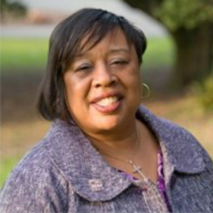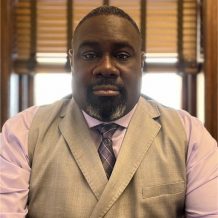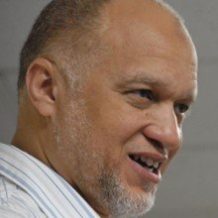On-Demand Webinar
By tracking the exact location of gun violence, we gain valuable data that can be used for delivering targeted, non-enforcement-based interventions. These interventions are designed to bring social and economic resources to the doorsteps of residents who have recently or persistently experienced gun and gang violence.
Made possible through data-sharing between law enforcement, offices of violence prevention and community stakeholders, these interventions have been shown to prevent immediate retaliation and address the trauma and toxic stress that are known causes of systemic violence in at-risk communities.
Social and economic resources for communities
Crime retaliation prevention
Trauma from systematic violence

Director of Ministries
First Mt. Sinai

Director
Neighborhood Safety and Engagement, City of Savannah

Project Manager
Miami-Dade County Anti-Violence Initiative
Reverend Damita Davis-Howard - Director of Ministries, First Mt. Sinai
Reverend Damita Davis-Howard is the director of ministries, assistant pastor at First Mt. Sinai. She is also the director of Oakland’s Ceasefire, a data-driven violence-reduction strategy coordinating law enforcement, social services, and the community. The major goal is to reduce gang/group-related homicides and shootings. Ceasefire seeks to combine the best of community energies, social services, and strategic law enforcement to reduce gun violence associated with gangs/groups far more effectively than these entities operating alone. She holds a B.A. in sociology from University of California, San Diego.
John Bush - Director, Neighborhood Safety and Engagement
John Bush serves as director of the Office of Neighborhood Safety and Engagement for the City of Savannah. In his role, he provides leadership and daily management of the department, assists with developing and implementing communitywide crime reduction goals, and works directly with law enforcement, concerned citizens and partner organizations to identify and connect individuals in need to support services. Prior to this role, Mr. Bush was a community intervention specialist for seven years as part of the Chatham County District Attorney’s Office and also worked for the Transportation Security Agency for nearly five years.
Wayne E. Rawlins - Praject Manager, Miami-Dade County Anti-Violence Initiative
Wayne E. Rawlins is a strategic planning consultant for communities nationwide with over 25 years of experience helping develop, implement and evaluate successful community revitalization strategies. He serves as the Project Manager for Miami-Dade County’s Anti-Violence Initiative, using gunshot detection data to provide social, economic, and health-related services to residents traumatized by gun violence. Passionate about serving all community members, Rawlins also helps citizens successfully reenter the community during and after incarceration and serves as the Director of the South Florida Reentry Task Force.
Dr. Gerard Tate - Community Engagement, ShotSpotter
Dr. Gerard Tate leads the community engagement and outreach activities for ShotSpotter, ensuring that community stakeholders’ input is integrated into ShotSpotter policies, procedures, and product development. Dr. Tate (DSW, LMSW) has nearly two decades of experience serving in both military and civilian law enforcement organizations. As a Licensed Master Social Worker, he has used his knowledge of the root causes of crime, human behavior, and social policy to advise organizations in creating, implementing, and evaluating violence prevention programs. Dr. Tate is an adjunct professor at Howard University in the graduate School of Social Work and holds a B.S. in criminology from Webster University, an MSW with a concentration in social and economic development from Washington University in St. Louis, and a Doctor of Social Work degree from the University of Southern California.
© 2022 ShotSpotter. All Rights Reserved.